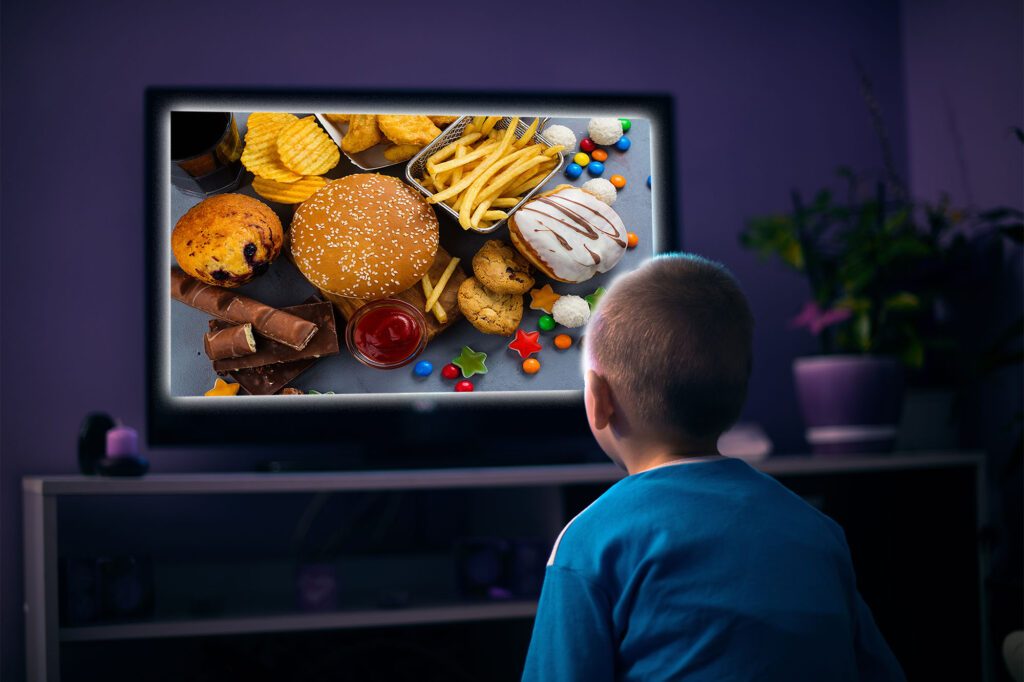April 30, 2023
Author: Manish Verma
Editor: Dr. Jitendra Kumar Sinha
Over the past years, there has been a growing concern regarding the surge of unhealthy food choices among young individuals. High-calorie, low-nutrient foods that are often packed with sugar, saturated fats, and sodium are readily available through fast food restaurants, and convenience stores, thereby providing quick and convenient access. The consumption of processed and packaged foods, coupled with sedentary lifestyles, has resulted in a sharp increase in obesity rates, type 2 diabetes, and other diet-related diseases among young people in the last two decades.
Additionally, marketing campaigns of unhealthy foods interfere with people’s psychology, influencing dietary patterns and resulting in limited informed choices. These campaigns often target young individuals and make unhealthy foods seem appealing and desirable Both regulatory agencies and nonprofit organizations seek to understand how various tactics and appeals contained in food and public health advertisements might influence consumers’ food choices. Given these trends, it is imperative to promote healthier eating habits and increase access to nutritious food choices for young individuals.

Scientific evidence has demonstrated that regular consumption of unhealthy foods can adversely impact brain health. Consumption of high-sugar and high-saturated fat diets can result in inflammation of the brain and disrupt cognitive functions such as memory, learning, and decision-making. Additionally, excessive sugar intake is linked to increased risks of depression and anxiety, while high consumption of saturated fats is associated with a higher risk of developing dementia and Alzheimer’s disease. It is important to note that the effects of unhealthy food choices on brain health can be long-lasting and may even cause irreversible damage. Therefore, promoting healthy eating habits and increasing awareness about the harmful effects of unhealthy food choices on brain health is imperative.
A new study published in Journal of Public Policy and Marketing aimed to explore the effects of unhealthy food consumption imagery on the food intake of consumers who are diet conscious. The study utilized two experiments that exposed the participants to food advertisements featuring unhealthy food consumption imagery, while the third experiment exposed participants to a public health advertisement that demonstrated the consequences of unhealthy food consumption.
The results of the experiments showed that exposure to food advertisements containing unhealthy food consumption imagery led to a reduction in food intake among consumers who were chronically concerned with dieting. Similarly, exposure to public health advertisement led to a decrease in intended consumption of unhealthy food.
These findings offer valuable insights for regulatory agencies and nonprofit organizations seeking to promote healthy eating habits. By avoiding the use of unhealthy food consumption imagery in food advertisements, such organizations can maximize the effectiveness of their messages and help consumers make healthier food choices.
Moreover, the research provides theoretical contributions to the self-control and mental imagery research domains, which can have public policy implications. Overall, the study highlights the need for continued research into the impact of food advertising on consumers’ food choices and the importance of public policy efforts to promote healthy eating habits.
References:
- Ghosh, S., Sinha, J. K., & Raghunath, M. (2019). ‘Obesageing’: Linking obesity & ageing. The Indian journal of medical research, 149(5), 610–615. https://doi.org/10.4103/ijmr.IJMR_2120_18
- Ghosh, S., Raghunath, M., Das, B. C., & Sinha, J. K. (2019). High sugar content in baby food: an Indian perspective. The lancet. Diabetes & endocrinology, 7(10), 748–749. https://doi.org/10.1016/S2213-8587(19)30291-8
- Birau, M. M., Hildebrand, D., & Werle, C. O. C. (2022). How Communications That Portray Unhealthy Food Consumption Reduce Food Intake Among Dieters. Journal of Public Policy & Marketing, 41(2), 162–176. https://doi.org/10.1177/07439156211019035
- Wolska, A., Stasiewicz, B., Kaźmierczak-Siedlecka, K., Ziętek, M., Solek-Pastuszka, J., Drozd, A., Palma, J., & Stachowska, E. (2022). Unhealthy Food Choices among Healthcare Shift Workers: A Cross-Sectional Study. Nutrients, 14(20), 4327. https://doi.org/10.3390/nu14204327
- Mc Carthy, C. M., de Vries, R., & Mackenbach, J. D. (2022). The influence of unhealthy food and beverage marketing through social media and advergaming on diet-related outcomes in children-A systematic review. Obesity reviews : an official journal of the International Association for the Study of Obesity, 23(6), e13441. https://doi.org/10.1111/obr.13441
Recent Articles
.
.


